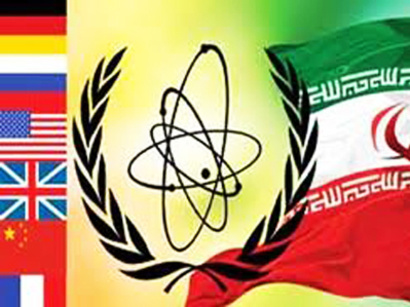
A Conversation on P5+1 with Barbara Slavin and Laura Rozen
Podcast: Play in new window | Download
Subscribe: Apple Podcasts | RSS
By Joshua Kyle Miller
Today, the American Security Project hosted a conversation on the recent round of P5+1 talks with Barbara Slavin, a correspondent for Al-monitor and a senior fellow at the Atlantic Council, and Laura Rozen, a correspondent for Al-monitor’s Back Channel.
 Barbara Slavin started the discussion with a brief opening on the background of the P5+1, setting the context of the talks and the events that have led to the negotiations. She highlighted that both sides, the P5+1 and Iran, have “tremendous incentives” to conduct negotiations. There has not been an opportunity like it, since both sides “had always been out of sync” with one another. Specifically referring to the leadership of Iran and the United States, Slavin stressed the missed opportunity for negotiations between President Khatami and President George W. Bush. ”When one side was ready to negotiate, the other was not and vice versa,” she said.
Barbara Slavin started the discussion with a brief opening on the background of the P5+1, setting the context of the talks and the events that have led to the negotiations. She highlighted that both sides, the P5+1 and Iran, have “tremendous incentives” to conduct negotiations. There has not been an opportunity like it, since both sides “had always been out of sync” with one another. Specifically referring to the leadership of Iran and the United States, Slavin stressed the missed opportunity for negotiations between President Khatami and President George W. Bush. ”When one side was ready to negotiate, the other was not and vice versa,” she said.
Slavin went on to say, however, that Khatami lacked a crucial dynamic that the current Iranian President, Hassan Rouhani, wields – a close and considerably supportive relationship with the Supreme Leader, Ayatollah Khamenei. Moreover, Rouhani possesses significant credentials that buttress his ability to negotiate with the U.S. – being a member of Iran’s Assembly of Experts, a member of the Expediency Council, and a member of the Supreme National Security Council to name a few. For these reasons, Slavin said she was “really optimistic” about the feasibility of these negotiations, despite their inherent and expected difficulties.
The conversation moved to Laura Rozen, who just came back from the talks in Geneva and gave a personal recap of the second round of the P5+1 talks. She highlighted the progression of the talks and the context that led up to  disagreement. She noted that “both sides had thought the preliminary draft had been tacitly agreed upon,” until France raised some objections; specifically, France had reservations with the heavy-water reactor at Arak and Iran’s “inherent” right to enrichment.
disagreement. She noted that “both sides had thought the preliminary draft had been tacitly agreed upon,” until France raised some objections; specifically, France had reservations with the heavy-water reactor at Arak and Iran’s “inherent” right to enrichment.
Beyond France’s objections, what struck Rozen the most was the fact France’s Foreign Minister, Laurent Fabius, broke protocol of the negotiations by announcing to the press that no agreement had been made and that they would meet again on November 20th. This violated a rule previously agreed upon that no details would be disclosed until the conclusion of the talks, and inhibited the European Union Foreign High Representative for Foreign Policy, Catherine Ashton and the Foreign Minister of Iran, Mohammad Javad Zarif, from giving a joint statement to the press.
Despite the disagreement, talks are still in progress and the countries are to convene again in the near future on November 20th. Slavin noted that President Rouhani’s “100th day of his administration is on November 26th,” and that he has “placed all his eggs in one basket”, by sidelining significant items on his domestic agenda because he wants a deal. To buttress Iran’s eagerness for a deal, Slavin highlighted Tehran’s recent action beyond its commitment to the Safeguard Agreement by accepting IAEA’s demand to inspect the Arak facility.
What both panelists seem to agree upon as the biggest obstacle to the talks was not the obvious assumption of mending the intractability between the P5+1 and Iran or coaxing France, but keeping Congress at bay. In the near future, Congress will be putting the Defense Authorization Act in front of the President which will appropriate funds to the defense sector; however, there have been suggestions indicating that a sanctions addendum may be placed into the bill as well – exacerbating the tense situation and quashing the progress of negotiations. At this critical juncture, Congress should refrain from placing additional sanctions on Iran and truly give diplomacy a chance.
You can listen to the discussion below:








[…] A Conversation on P5+1 with Barbara Slavin and Laura Rozen […]
[…] A Conversation on P5+1 with Barbara Slavin and Laura Rozen Joshua Miller […]